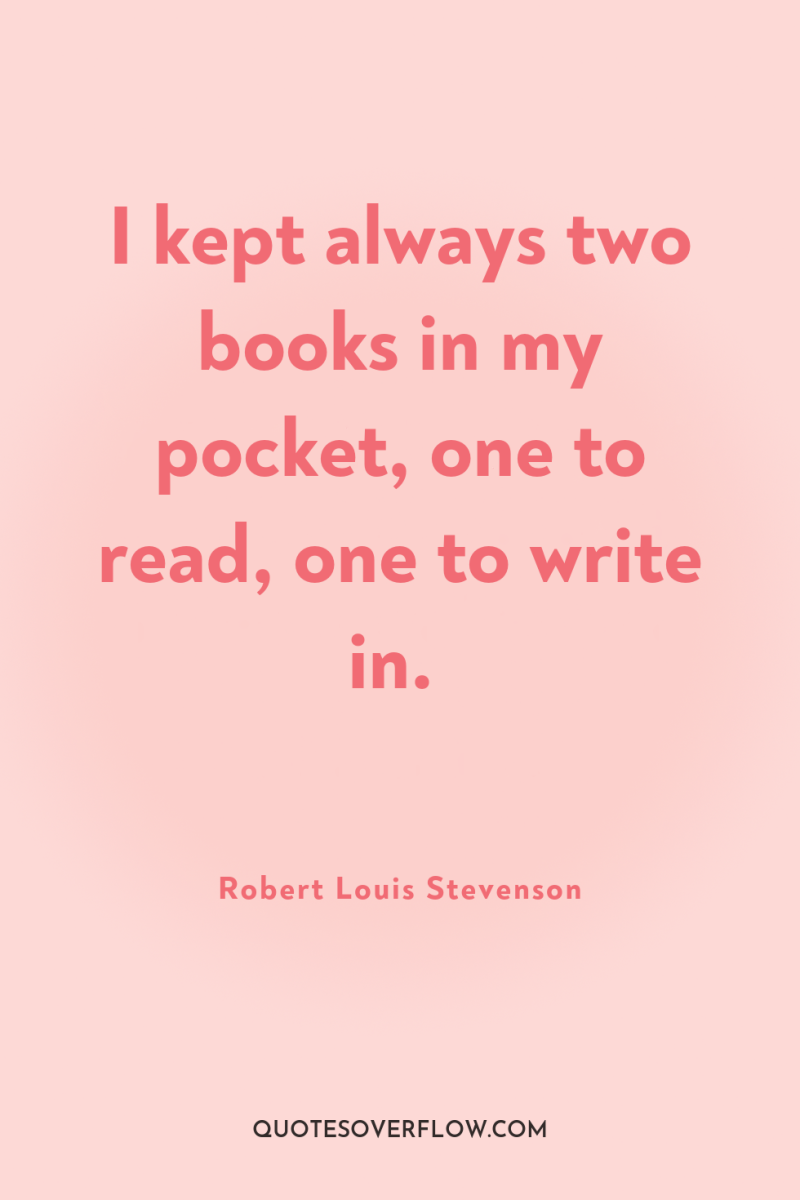
1
I kept always two books in my pocket, one to read, one to write in.Robert Louis Stevenson
2
In the deepest hour of the night, confess to yourself that you would die if you were forbidden to write. And look deep into your heart where it spreads its roots, the answer, and ask yourself, must I write?Rainer Maria Rilke
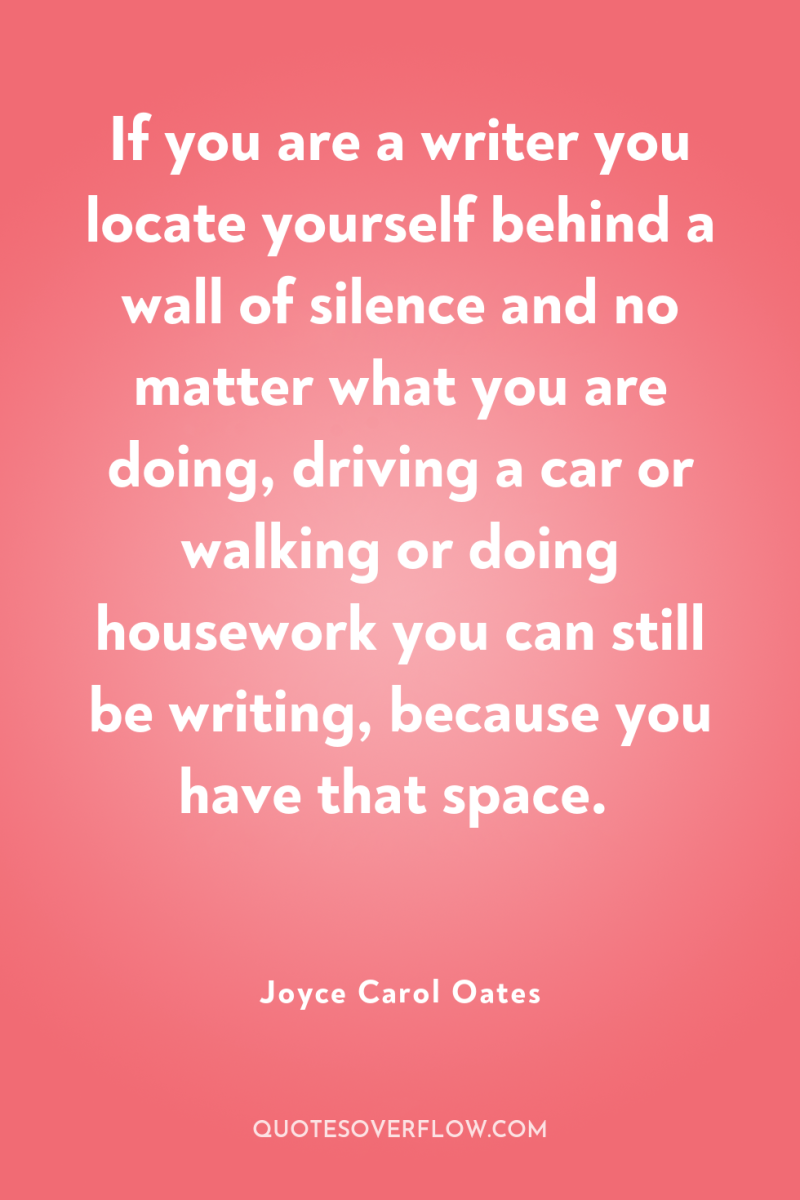
3
If you are a writer you locate yourself behind a wall of silence and no matter what you are doing, driving a car or walking or doing housework you can still be writing, because you have that space.Joyce Carol Oates
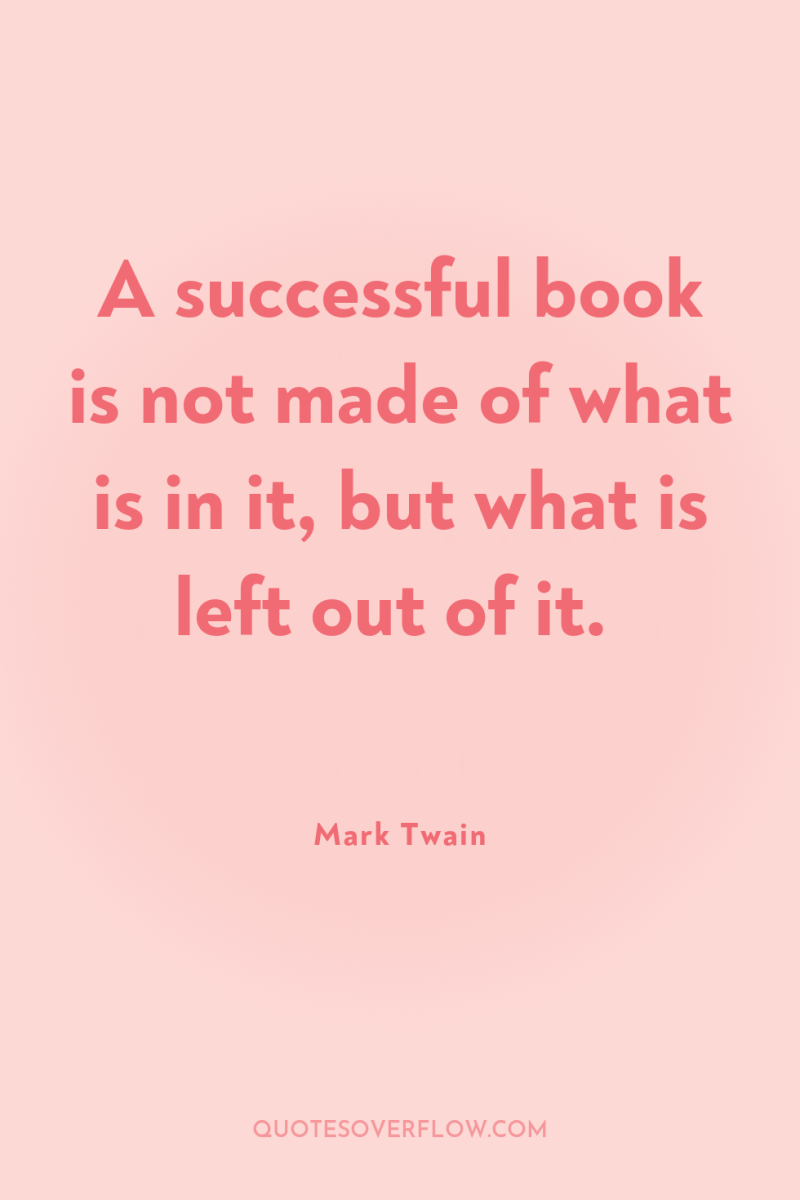
4
A successful book is not made of what is in it, but what is left out of it.Mark Twain
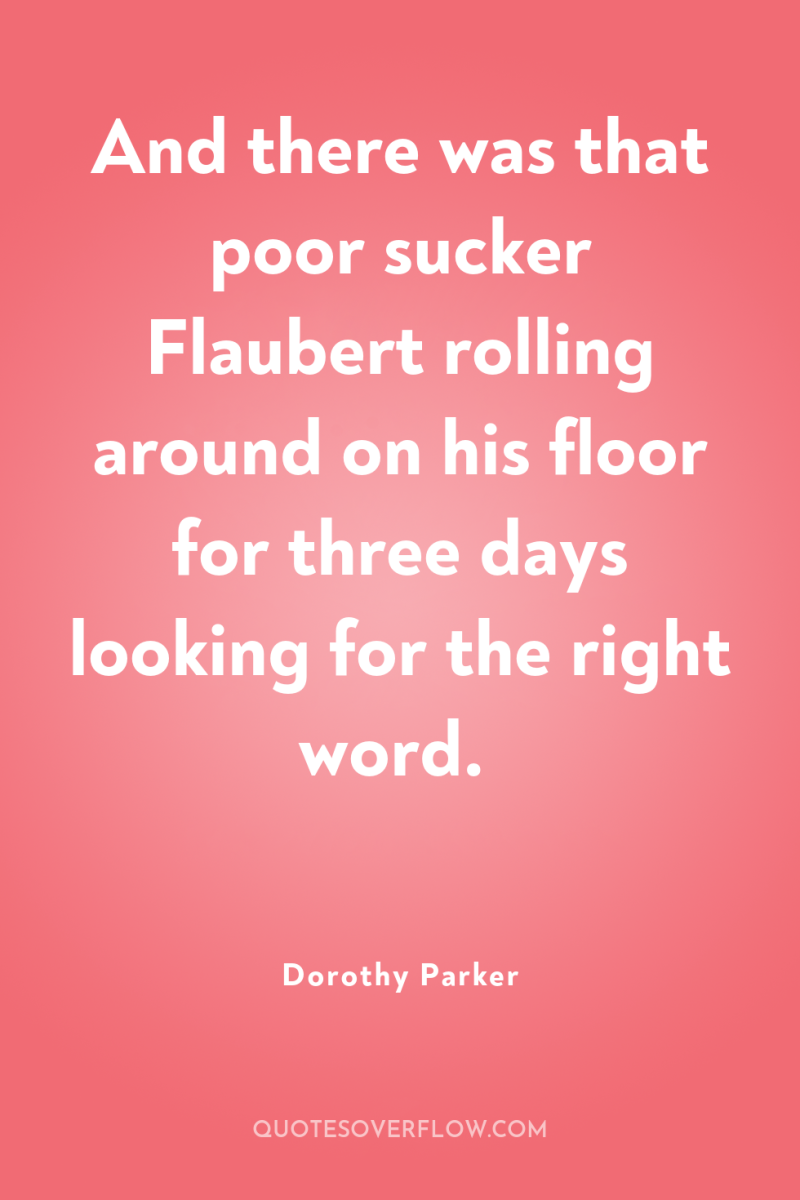
5
And there was that poor sucker Flaubert rolling around on his floor for three days looking for the right word.Dorothy Parker
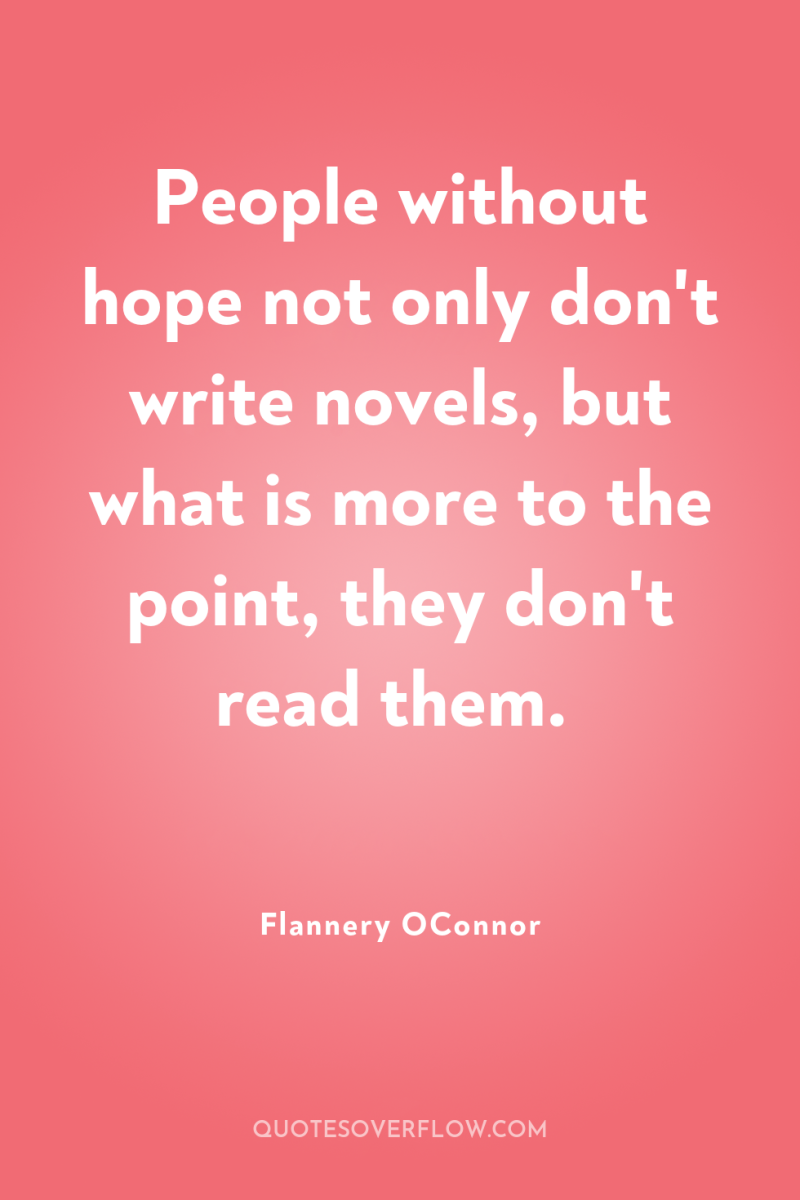
6
People without hope not only don't write novels, but what is more to the point, they don't read them.Flannery OConnor
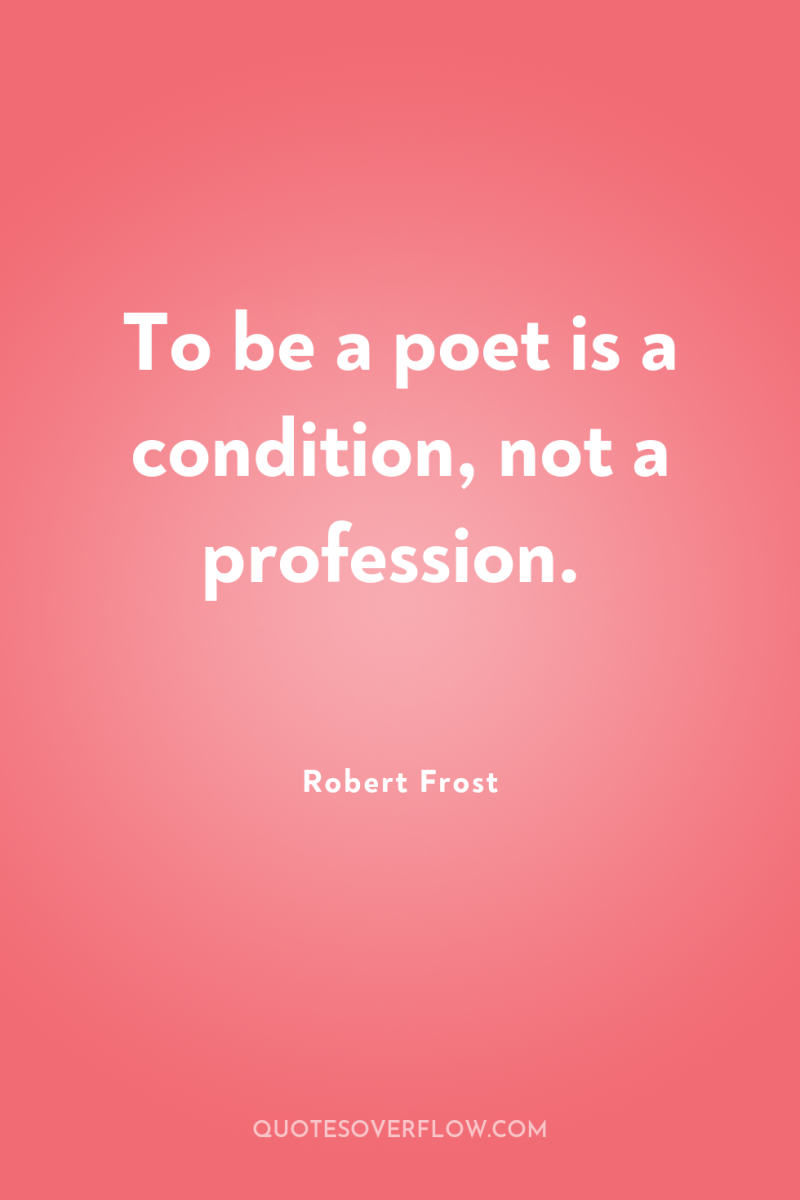
7
To be a poet is a condition, not a profession.Robert Frost
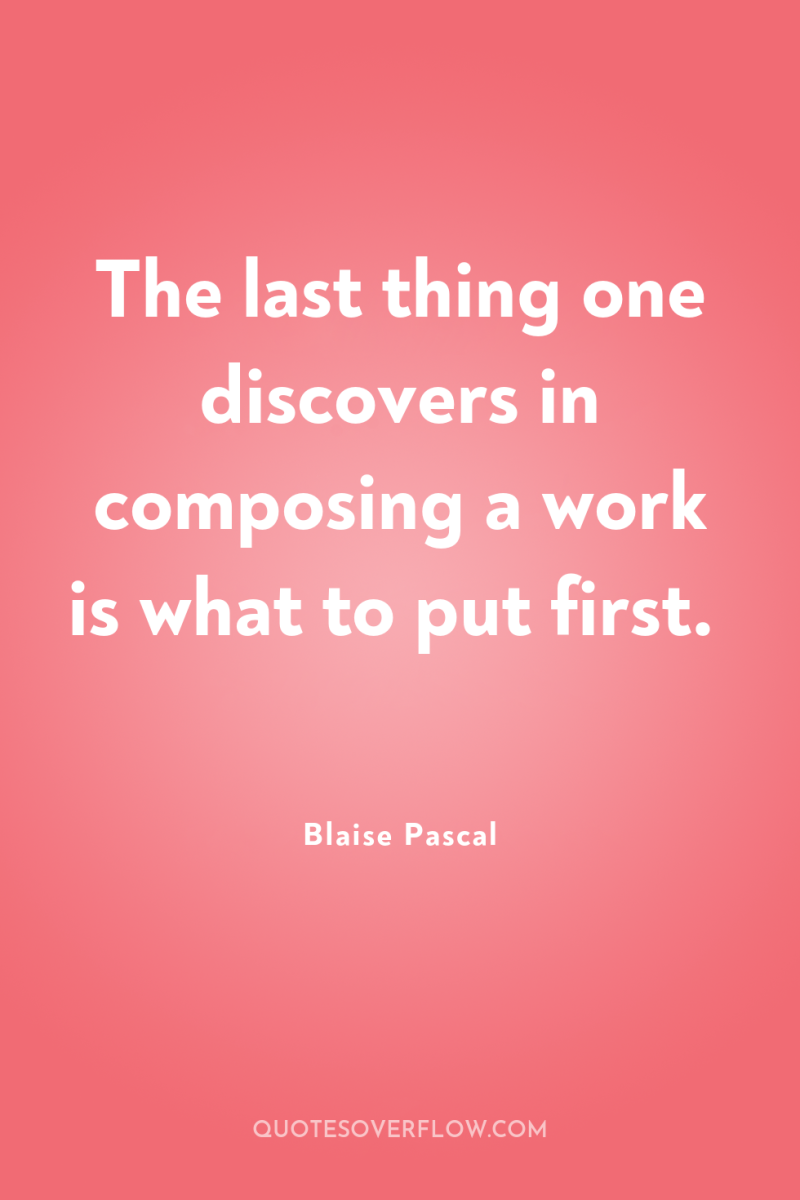
8
The last thing one discovers in composing a work is what to put first.Blaise Pascal
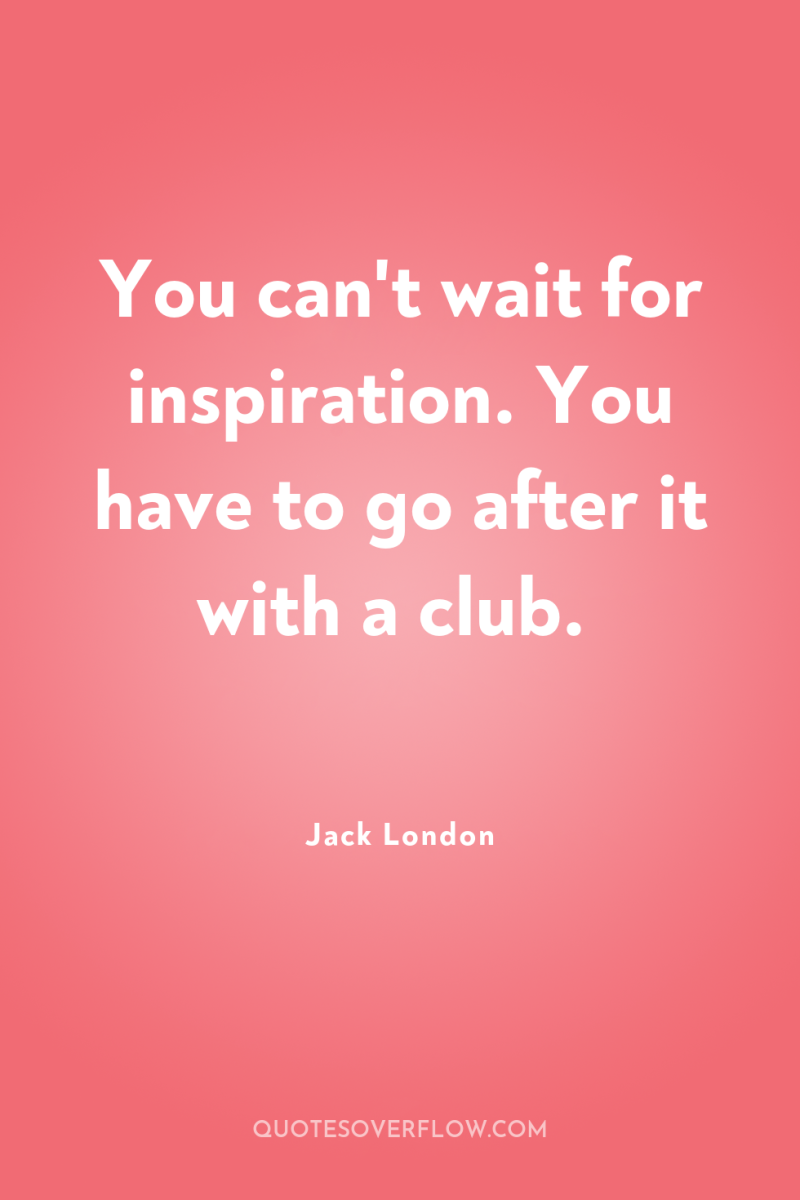
9
You can't wait for inspiration. You have to go after it with a club.Jack London
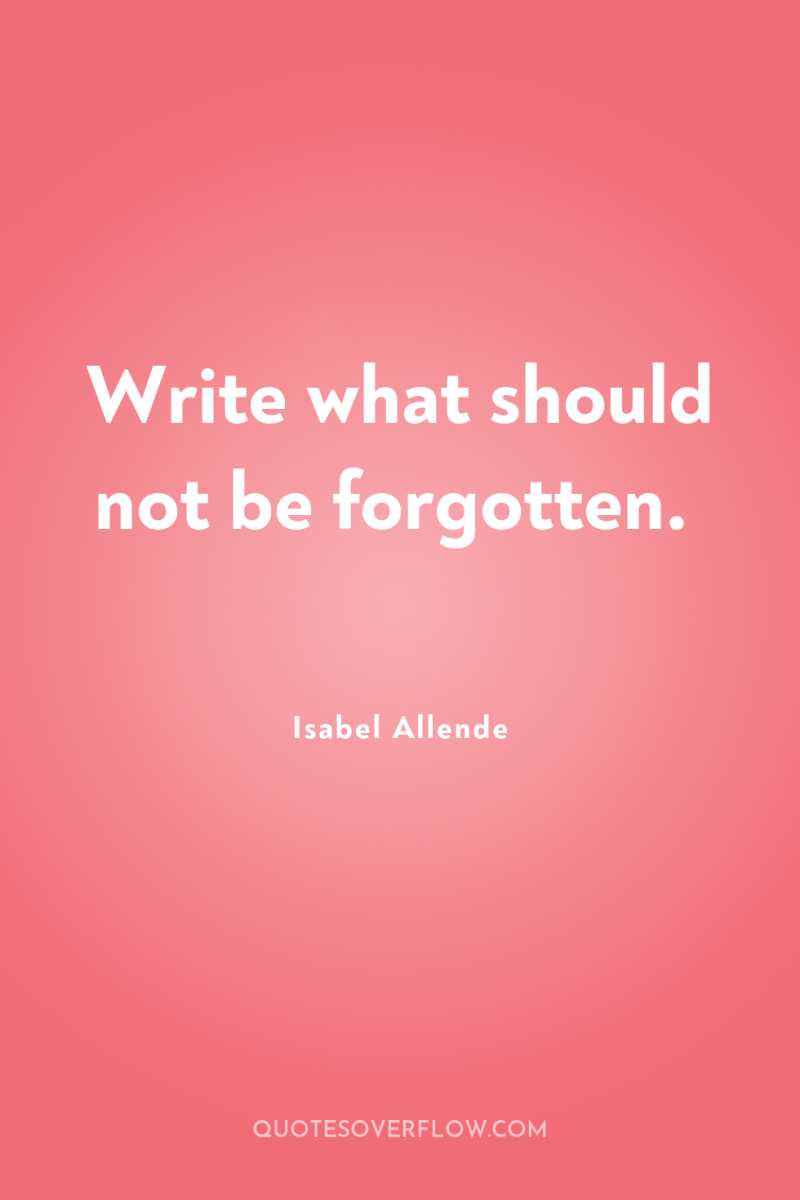
10
Write what should not be forgotten.Isabel Allende
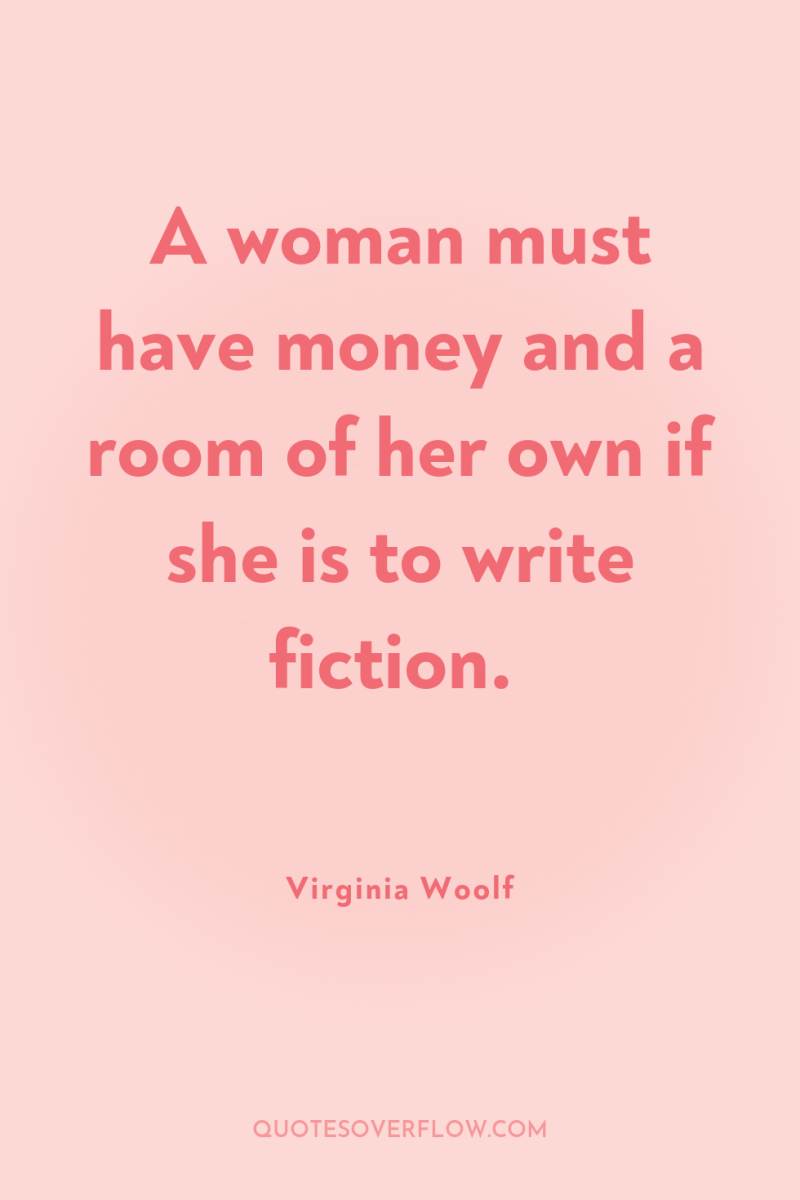
11
A woman must have money and a room of her own if she is to write fiction.Virginia Woolf
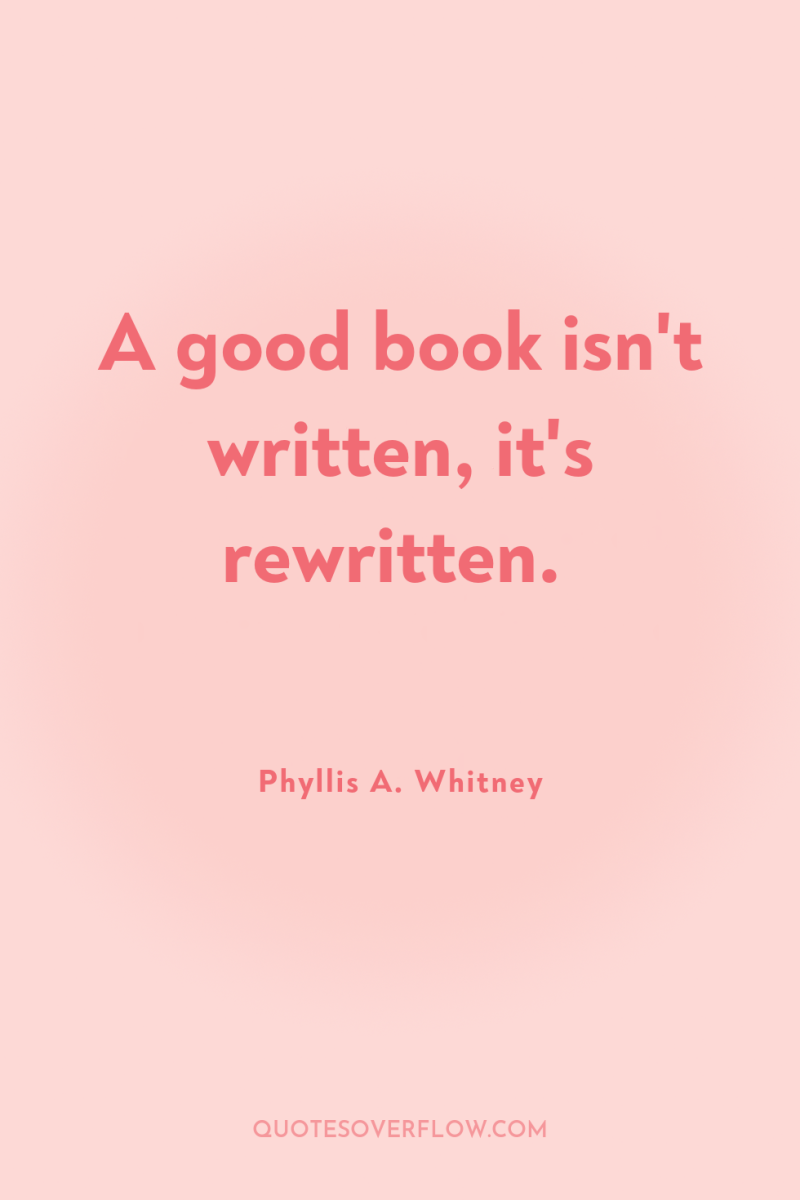
12
A good book isn't written, it's rewritten.Phyllis A. Whitney
13
All the stories I would like to write persecute me. When I am in my chamber, it seems as if they are all around me, like little devils, and while one tugs at my ear, another tweaks my nose, and each says to me, 'Sir, write me, I am beautiful.Umberto Eco
14
The writer's only responsibility is to his art. He will be completely ruthless if he is a good one. He has a dream. It anguishes him so much he must get rid of it. He has no peace until then. Everything goes by the board: honor, pride, decency, security, happiness, all, to get the book written. If a writer has to rob his mother, he will not hesitate; the 'Ode on a Grecian Urn' is worth any number of old ladies. .William Faulkner
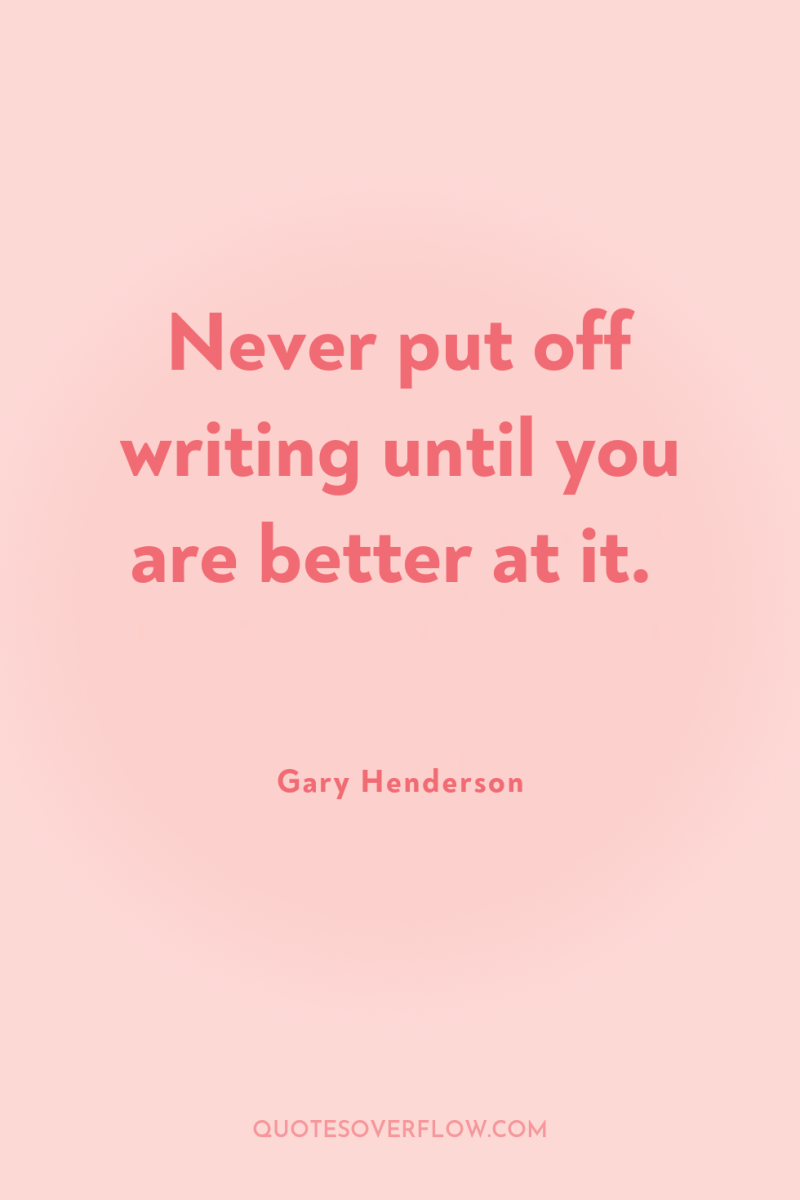
15
Never put off writing until you are better at it.Gary Henderson
16
It's possible, in a poem or a short story, to write about commonplace things and objects using commonplace but precise language, and to endow those things-- a chair, a window curtain, a fork, a stone, a woman's earring-- with immense, even startling power. It is possible to write a line of seemingly innocuous dialogue and have it send a chill along the reader's spine-- the source of artistic delight, as Nabokov would have it. That's the kind of writing that most interests me.Raymond Carver
17
Evan Connell said once that he knew he was finished with a short story when he found himself going through it and taking out commas and then going through the story again and putting the commas back in the same places. I like that way of working on something. I respect that kind of care for what is being done. That's all we have, finally, the words, and they had better be the right ones, with the punctuation in the right places so that they an best say what they are meant to say. If the words are heavy with the writer's own unbridled emotions, or if they are imprecise and inaccurate for some other reason -- if the worlds are in any way blurred -- the reader's eyes will slide right over them and nothing will be achieved. Henry James called this sort of hapless writing 'weak specification'.Raymond Carver
18
The one thing which seems to me quite impossible is to take into consideration the kind of book one is expected to write; surely one can only write the book that is there to be written., 8 September 1935)Dorothy L. Sayers
19
V.S. Pritchett's definition of a short story is 'something glimpsed from the corner of the eye, in passing.' Notice the 'glimpse' part of this. First the glimpse. Then the glimpse gives life, turned into something that illuminates the moment and may, if we're lucky -- that word again -- have even further ranging consequences and meaning. The short story writer's task is to invest the glimpse with all that is in his power. He'll bring his intelligence and literary skill to bear (his talent), his sense of proportion and sense of the fitness of things: of how things out there really are and how he sees those things -- like no one else sees them. And this is done through the use of clear and specific language, language used so as to bring to life the details that will light up the story for the reader. For the details to be concrete and convey meaning, the language must be accurate and precisely given. The words can be so precise they may even sound flat, but they can still carry; if used right they can hit all the notes.Raymond Carver
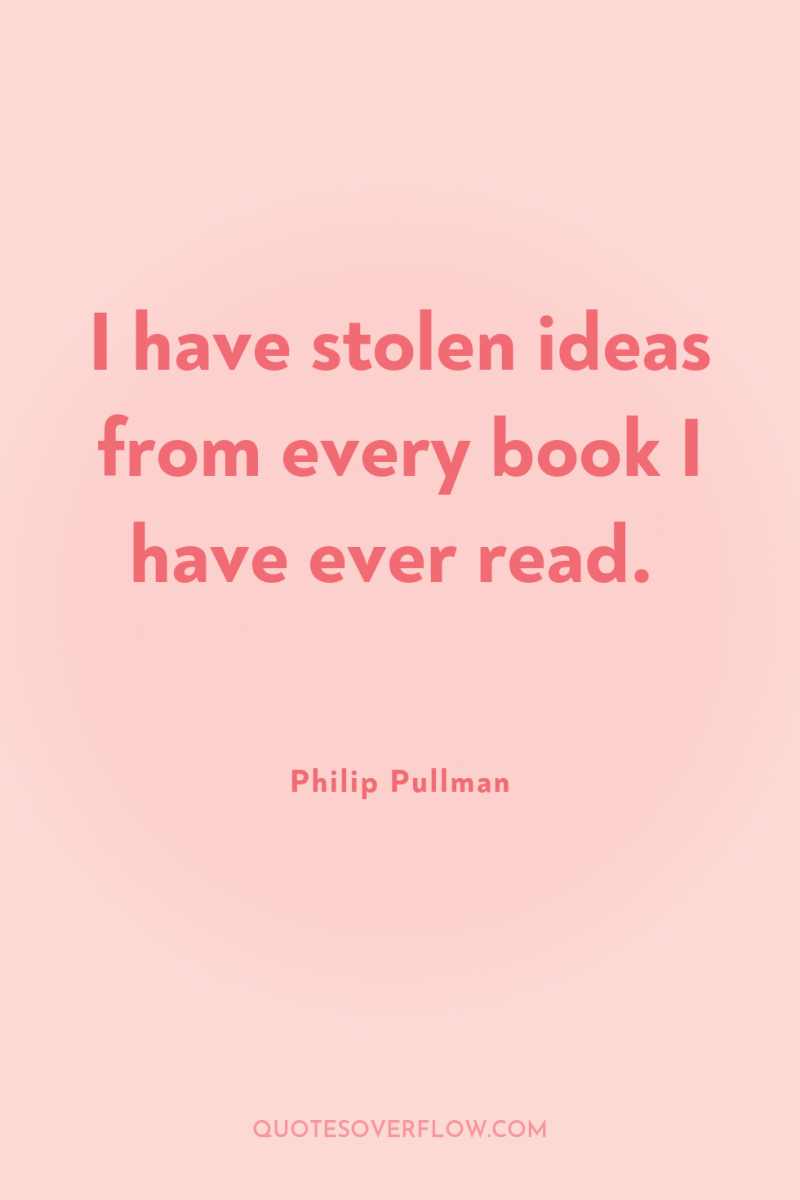
20
I have stolen ideas from every book I have ever read.Philip Pullman
21
Actually, writers have no business writing about their own works. They either wax conceited, saying things like: 'My brilliance is possibly most apparent in my dazzling short story, "The Cookiepants Hypotenuse."' Or else they get unbearably cutesy: 'My cat Ootsywootums has given me all my best ideas, hasn't oo, squeezums?Connie Willis

22
O for a Muse of fire, that would ascend The brightest heaven of invention!William Shakespeare
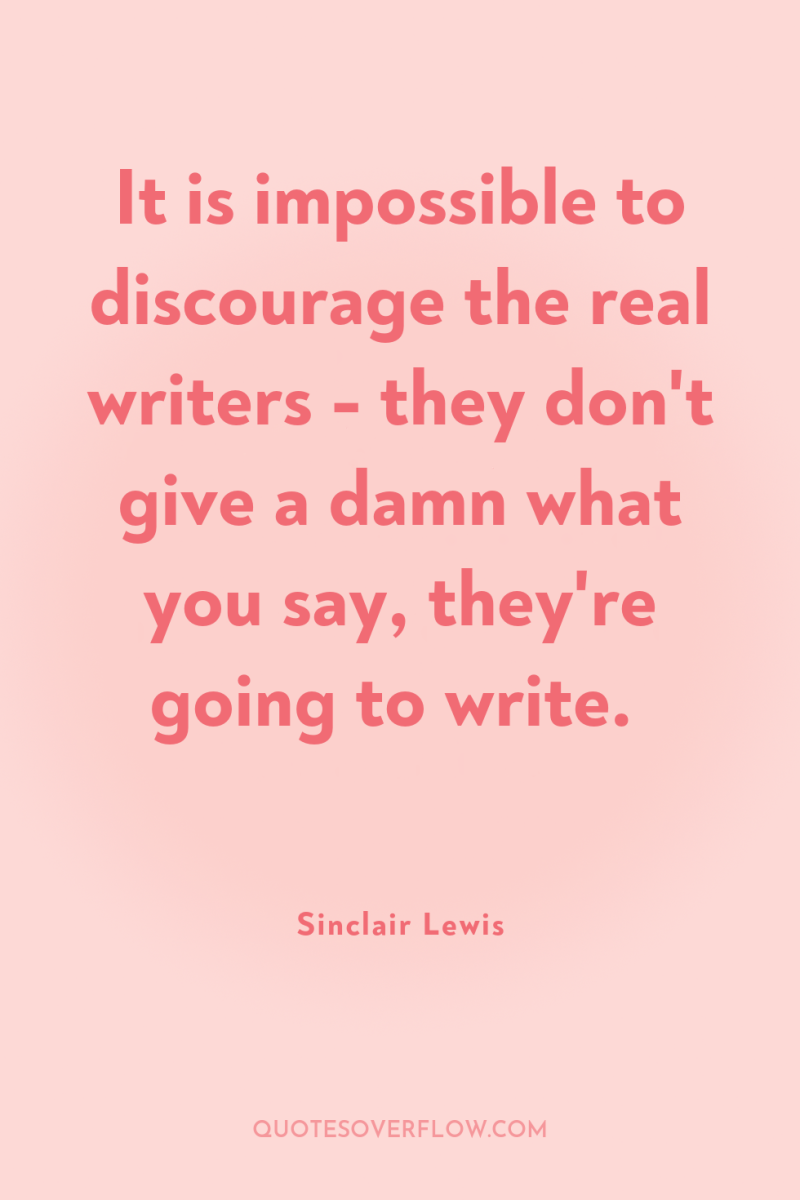
23
It is impossible to discourage the real writers - they don't give a damn what you say, they're going to write.Sinclair Lewis
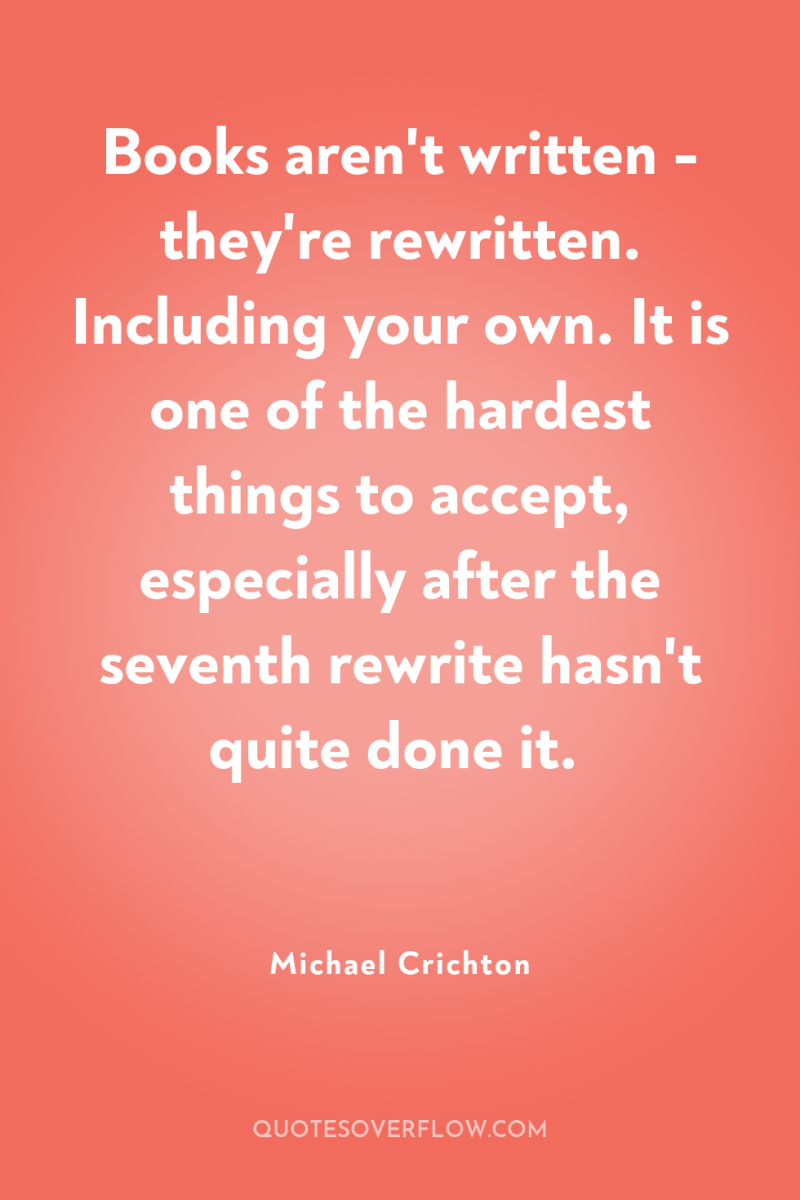
24
Books aren't written - they're rewritten. Including your own. It is one of the hardest things to accept, especially after the seventh rewrite hasn't quite done it.Michael Crichton
25
I spent days and nights staring at the blank page, searching the deepest corners of my mind: who have I been, what have I seen, what did I learn? I thought about all the nights I've spent outside, all the times I laid down to cry and how I took a deep breath every morning and decided to simply go on. Because what else is there to do? Decide that this is it? I quit, I'm done? Oh if I could find words to justify those feelings I've carried. I could write the thickest of books with explosions of emotions from a young girl's lost heart. I could make you see, make you hear, make you feel, at least a tiny fragment of what's out there. .Charlotte Eriksson
26
My best advice about writer’s block is: the reason you’re having a hard time writing is because of a conflict between the GOAL of writing well and the FEAR of writing badly. By default, our instinct is to conquer the fear, but our feelings are much, much, less within our control than the goals we set, and since it’s the conflict BETWEEN the two forces blocking you, if you simply change your goal from “writing well” to “writing badly, ” you will be a veritable fucking fountain of material, because guess what, man, we don’t like to admit it, because we’re raised to think lack of confidence is synonymous with paralysis, but, let’s just be honest with ourselves and each other: we can only hope to be good writers. We can only ever hope and wish that will ever happen, that’s a bird in the bush. The one in the hand is: we suck. We are terrified we suck, and that terror is oppressive and pervasive because we can VERY WELL see the possibility that we suck. We are well acquainted with it. We know how we suck like the backs of our shitty, untalented hands. We could write a fucking book on how bad a book would be if we just wrote one instead of sitting at a desk scratching our dumb heads trying to figure out how, by some miracle, the next thing we type is going to be brilliant. It isn’t going to be brilliant. You stink. Prove it. It will go faster. And then, after you write something incredibly shitty in about six hours, it’s no problem making it better in passes, because in addition to being absolutely untalented, you are also a mean, petty CRITIC. You know how you suck and you know how everything sucks and when you see something that sucks, you know exactly how to fix it, because you’re an asshole. So that is my advice about getting unblocked. Switch from team “I will one day write something good” to team “I have no choice but to write a piece of shit” and then take off your “bad writer” hat and replace it with a “petty critic” hat and go to town on that poor hack’s draft and that’s your second draft. Fifteen drafts later, or whenever someone paying you starts yelling at you, who knows, maybe the piece of shit will be good enough or maybe everyone in the world will turn out to be so hopelessly stupid that they think bad things are good and in any case, you get to spend so much less time at a keyboard and so much more at a bar where you really belong because medicine because childhood trauma because the Supreme Court didn’t make abortion an option until your unwanted ass was in its third trimester. Happy hunting and pecking! .Dan Harmon
27
There are some writers who sweep us along so strongly in their current of energy-- Normal mailer, Tom Wolfe, Toni Morrison, William F. Buckley, Jr., Hunter Thompson, David Foster Wallace, Dave Eggers--that we assume that when they go to work the words just flow. Nobody thinks of the effort they made every morning to turn on the switch. You also have to turn on the switch. Nobody is going to do it for you.William Zinsser
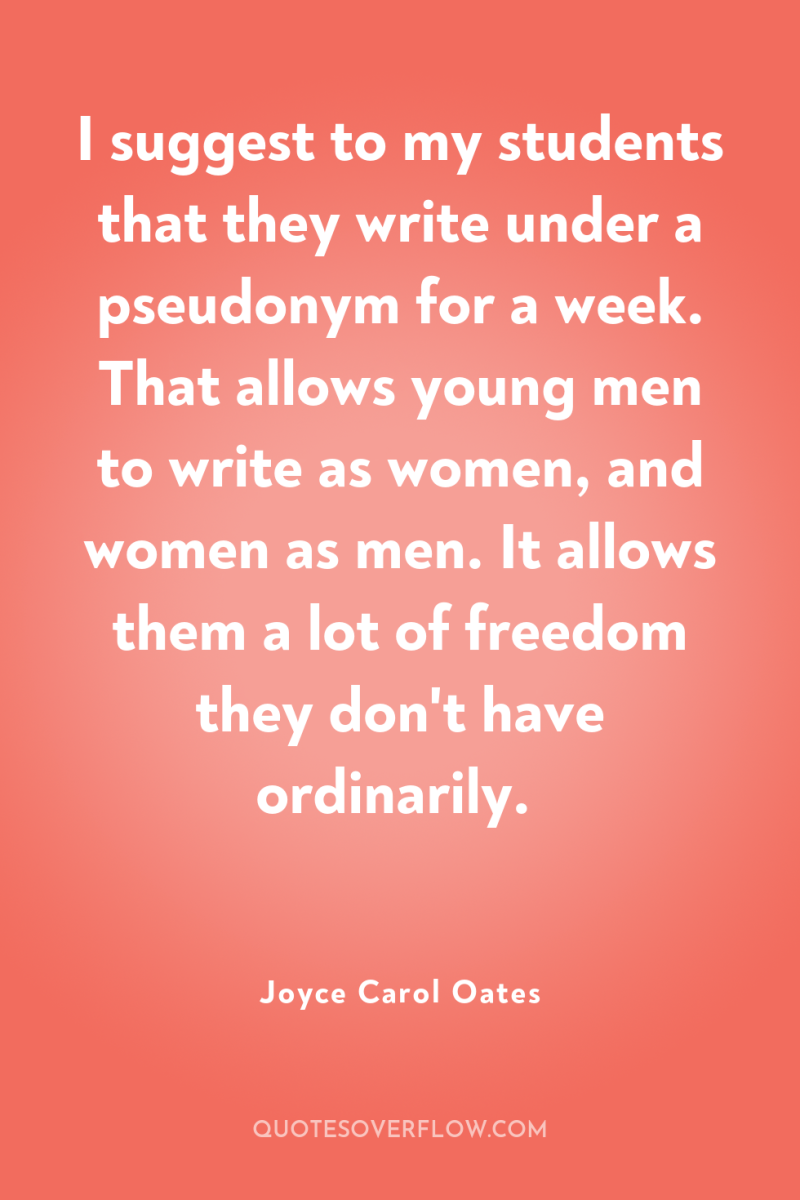
28
I suggest to my students that they write under a pseudonym for a week. That allows young men to write as women, and women as men. It allows them a lot of freedom they don't have ordinarily.Joyce Carol Oates
29
Every line of serious work that I have written since 1936 has been written, directly or indirectly, against totalitarianism and for democratic socialism, as I understand it. It seems to me nonsense, in a period like our own, to think that one can avoid writing of such subjects. Everyone writes of them in one guise or another. It is simply a question of which side one takes and what approach one follows. And the more one is conscious of one's political bias, the more chance one has of acting politically without sacrificing one's aesthetic and intellectual integrity.George Orwell
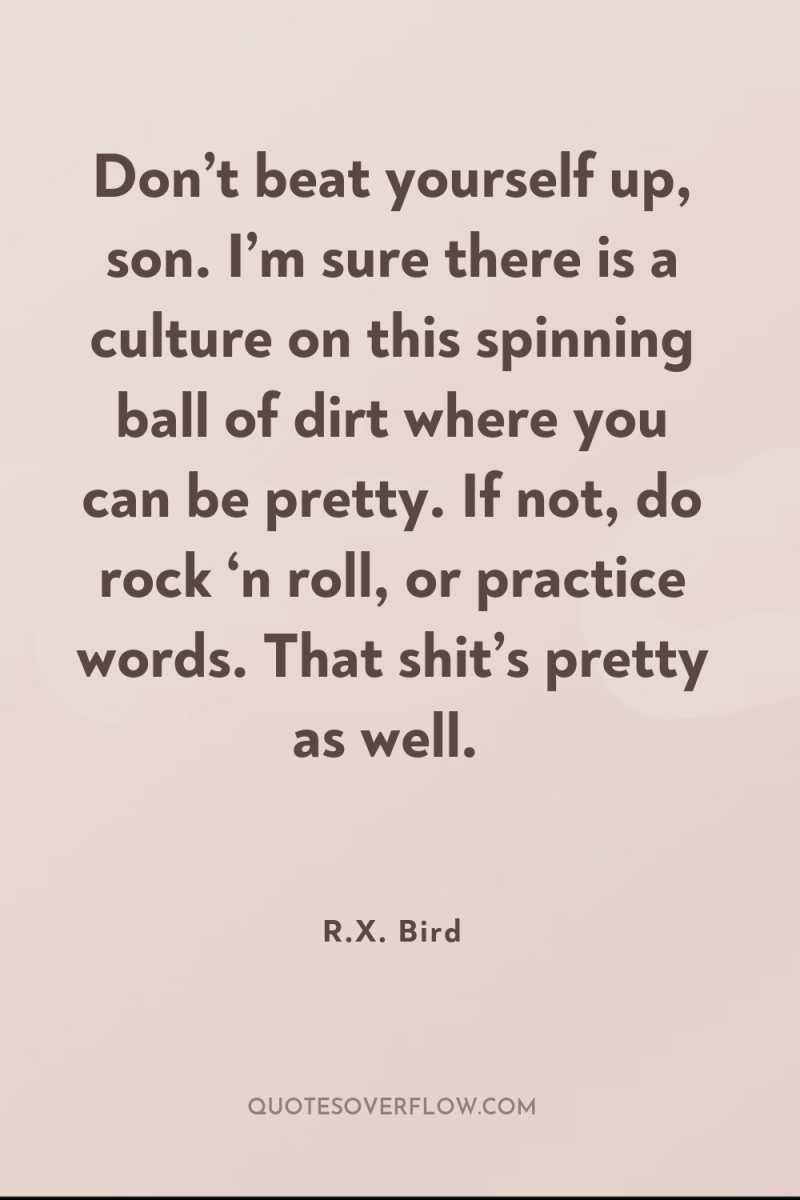
30
Don’t beat yourself up, son. I’m sure there is a culture on this spinning ball of dirt where you can be pretty. If not, do rock ‘n roll, or practice words. That shit’s pretty as well.R.X. Bird
31
Be a good reader first, if you wish to become a good writer.Pawan Mishra
32
Timid young artists, adding parental fears to their own, often give up their sunny dreams of artistic careers, settling into the twilight world of could-have-beens and regrets.Julia Cameron
33
Art is not about thinking something up. It is about the opposite–getting something down.Julia Cameron
34
A writer gets to live yet another life every time she creates a new story.Pawan Mishra
35
Writing a story is like going on a date–you will spoil it if you aren't living in the moment.Pawan Mishra
36
Tell a story in lesser and simpler words.Pawan Mishra
37
Don’t break the rules when you haven’t fully figured them out yet.Pawan Mishra
38
Dreams are good at playing with your memory. They love leaving no trace behind and hate to show up once again in the morning.Pawan Mishra
39
The good writing ideas don’t have to be about political turmoil, mass killings, capitalism, racism, injustice, etc. Find that one idea that has deep roots in your heart.Pawan Mishra
40
Create a world in front of your readers where they can taste, smell, touch, hear, see, and move. Else they are likely going to move on to another book.Pawan Mishra
41
A writer can do without food for a few hours, but not without the sight of books.Pawan Mishra
42
Turn those deep feelings and obsessions of your heart into captivating pieces of literature.Pawan Mishra
43
Ideas either age like fine wine or rot like potatoes over time.Pawan Mishra
44
If you are a singer, you must sing. If you are a dancer, you must dance. If you are a writer, you must write. Don’t suffocate your heart.Pawan Mishra
45
As you become a better writer, the writing becomes more difficult. You toil harder to tell a story in a lesser number of words.Pawan Mishra
46
Don’t interrupt when your characters take a flight of their own.Pawan Mishra
47
Cliches are the viruses that infect your writing with diseases.Pawan Mishra
48
If you think there is no time to write now, there would never be.Pawan Mishra
49
If certain aspect needs to be inconsistent, it must better be consistently inconsistent throughout the story.Pawan Mishra
50
You come to understand that history might be, as Thomas Carlyle put it, “a distillation of rumor, ” or, as Napoleon said, “a set of lies generally agreed uponJames Alexander Thom
51
Am I making something worth while? I’m not sure. I write and I sing and I hear words from time to time about my life and choices making ways, into other lives, other hearts, but am I making something worth while? I’m not sure. There was a boy last night who I never spoke to because I was too drunk and still shy, but mostly lonely, and I couldn’t find anything lightly to say, so I simply walked awaybut still wondered what he did with his lifebecause he didn’t even speak to meor look at mebut still made me wonder who he wasand I walked away asking Am I making something worth while? I am not sure. I am a complicated person with a simple lifeand I am the reason for everything that ever happened to me. .Charlotte Eriksson
52
I write fiction. It may have mystery, it may have horror, it may have fantasy, it may have love, but like life, it's all the same genre.Don Roff
53
I know, not everyone will like what I write, but writing is not about trying to please everybody.E.a. Bucchianeri
54
Giving a reader a sex scene that is only half right is like giving her half of a kitten. It is not half as cute as a whole kitten; it is a bloody, godawful mess.Howard Mittelmark
55
Are you imperfect, romantically irrational, ridiculously fearless, and utterly illogical? You're my ideal reader, friend, partner. I'm your fan.Brook Tesla
56
Writing is about truth, whether it be fiction or a school essay. Don't give in and 'fake it till you make it.' Criticize what upsets you.Bryant Loney
57
It is not my job to explain the story or understand the story or reduce it to a phrase or offer it as being a story about any specific person, place, or thing. My job is to have been true enough to the world of my story that I was able to present it as a forceful and convincing drama. Every story is a kind of puzzle. Many have obvious solutions, and some have no solution at all. We write to present questions, sometimes complicated questions, not to offer easy or not-so-easy answers. Do not be misled by the limited vocabulary the American marketplace uses to describe the possibilities for story and drama. If we’re really writing we are exploring the unnamed emotional facets of the human heart. Not all emotions, not all states of mind have been named. Nor are all the names we have been given always accurate. The literary story is a story that deals with the complicated human heart with an honest tolerance for the ambiguity in which we live. No good guys, no bad guys, just guys: that is, people bearing up the crucible of their days and certainly not always–if ever–capable of articulating their condition.Ron Carlson
58
And this is what being an artist means, being a poet? To sacrifice yourself for your art, sacrifice your heart for your art, because it’s only through something broken that something beautiful can grow.Charlotte Eriksson
59
Inspiration is wonderful when it happens, but the writer must develop an approach for the rest of the time... The wait is simply too long.Leonard Bernstein
60
Working with the morning pages, we begin to sort through the differences between our real feelings, which are often secret, and our official feelings, those on the record for public display.Julia Cameron
61
One of the few things I know about writing is this:spend it all, shoot it, play it, lose it, right away, every time. Do not hoard what seems good for a later place in the book, or for another book; give it, give it all, give it now. The impulse to save something good for a better place later is a signal to spend it now. Something more will arise later, something better. These things fill from behind, from beneath, like well water.Annie Dillard
62
I hope that I capture something in my work that is about the elusive, the magical and powerful and the transformative. The writing in itself is transformative for me.H. Raven Rose
63
A novel examines not reality but existence. And existence is not what has occurred, existence is the realm of human possibilities, everything that man can become, everything he's capable of. Novelists draw up the map of existence by discovering this or that human possibilit. But again, to exist mean: 'being-in-the-world.' Thus both the character and his world must be understood as possibilities.Milan Kundera
64
I'm not asking you to come reverently or unquestioningly; I'm not asking you to be politically correct or cast aside your sense of humor (please God you have one). This isn't a popularity contest, it's not the moral Olympics, and it's not church. But it's Writing, damn it, not washing the car or putting on eyeliner. If you can take it seriously, we can do business. If you can't or won't, it's time for you to close the book and do something else. Wash the car, maybe.Stephen King
65
It's not what you lift, it's where you carry it.David Foster Wallace
66
What is hell to a writer? Hell is being too busy to find the time to write or being unable to find the inspiration. Hell is suddenly finding the words but being away from your notebook or typewriter. Hell is when the verses slip away through your fingers and they never return again.R.M. Engelhardt (TALON)
67
The man is in his work, read it if you want to know about him.R.M. Engelhardt (TALON)
68
Pay attention, and use your imagination.R.M. Engelhardt (TALON)
69
I have found that a writer is formed not so much by their experiences but by the way in which they view and capture those experiences. Like vivid, rainbow metallic skin cells on the wings of a fragile butterfly, it is how you touch and reveal those inner parts of yourself, without damaging the psyche, that determines whether the beauty is experienced and expressed and shared with others or, in fact, becomes the death of the self and Soul and psyche. I hope that I capture something in my work that is about the elusive, the magical and powerful and the transformative. The writing in itself is transformative for me. .Sophia Rose
70
Writing on dark themes is not as easy as one might think; you have to live the worst and the most terrifying nightmares, again and again, till they consume you entirely and become an inseparable part of you that you start dreading.Heena Rathore P.
71
There's an epigram tacked to my office bulletin board, pinched from a magazine -- "Wanting to meet an author because you like his work is like wanting to meet a duck because you like pâté.Margaret Atwood
72
1. Write like you’ll live forever – fear is a bad editor.2. Write like you’ll croak today – death is the best editor.3. Fooling others is fun. Fooling yourself is a lethal mistake.4. Pick one – fame or delight.5. The archer knows the target. The poet knows the wastebasket.6. Cunning and excess are your friends.7. TV and liquor are your enemies.8. Everything eternal happens in a spare room at 3 a.m.9. You’re done when the crows sing.Ron Dakron
73
Good writers define reality; bad ones merely restate it. A good writer turns fact into truth; a bad writer will, more often than not, accomplish the opposite.Edward Albee
74
Authors, he thought. Even the sane ones are nuts.Dan Brown
75
Fruition-Think of writing as a harvest. You till the ground. Plant. Water. Wait. Apple trees take years to bear fruit. Harvest. Clean. Process. Then you have apple pie.Keelie Breanna
76
When you write a story you're telling yourself the story. When you rewrite your main job is taking out all the things that are NOT the story.Stephen King
77
Writing is such a lonely work that I try to keep myself cheered up.William Zinsser
78
Most writers sow adjectives almost unconsciously into the soil of their prose to make it more lush and pretty, and the sentences become longer and longer as they fill up with stately elms and frisky kittens and hard-bitten detectives and sleepy lagoons. This is adjective-by-habit - a habit you should get rid of. Not every oak has to be gnarled. The adjective that exists solely as a decoration is a self-indulgence for the writer and a burden for the reader. .William Zinsser
79
Most writers sow adjectives almost unconsciously into the soil of their prose to make it more lush and pretty, and the sentences become longer and longer as they fill up with stately elms and frisky kittens and hard-bitten detectives and sleepy lagoons. This is adjective-by-habit - a habit you should get rid of. Not every oak has to be gnarled. The adjective exists solely as a decoration is a self-indulgence for the writer and a burden for the reader. .William Zinsser
80
I like to think that Henry James said his classic line, "A writer is someone on whom nothing is lost, " while looking for his glasses, and that they were on top of his head.Anne Lamott
81
Give me just enough information so that I can lie convincingly.Stephen King
82
For me, all writing -- storytelling and style -- gets back to the Bible, Twain and Hemingway, and not in that order.Dennis R. Miller
83
I'm not much of a believer in the so-called character study; I think that in the end, the story should always be the boss.Stephen King
84
I'm not much of a believer in the so-called character story; I think that in the end, the story should always be the boss.Stephen King
85
There are books full of great writing that don't have very good stories. Read sometimes for the story... don't be like the book-snobs who won't do that. Read sometimes for the words--the language. Don't be like the play-it-safers who won't do that. But when you find a book that has both a good story and good words, treasure that book.Stephen King
86
I think the best stories always end up being about the people rather than the event, which is to say character-driven.Stephen King
87
Don’t quit. It’s very easy to quit during the first 10 years. Nobody cares whether you write or not, and it’s very hard to write when nobody cares one way or the other. You can’t get fired if you don’t write, and most of the time you don’t get rewarded if you do. But don’t quit.Andre Dubus
88
I write because I am a writer, not because I want to get anything out of it.H. Raven Rose
89
Learn to enjoy this tidying process. I don't like to write; I like to have written. But I love to rewrite. I especially like to cut: to press the DELETE key and see an unnecessary word or phrase or sentence vanish into the electricity. I like to replace a humdrum word with one that has more precision or color. I like to strengthen the transition between one sentence and another. I like to rephrase a drab sentence to give it a more pleasing rhythm or a more graceful musical line. With every small refinement I feel that I'm coming nearer to where I would like to arrive, and when I finally get there I know it was the rewriting, not the writing, that wont the game.William Zinsser
90
It wont do to say that the reader is too dumb or too lazy to keep pace with the train of thought. If the reader is lost, it's usually because the writer hasn't been careful enoughWilliam Zinsser
91
There may be a Nurse Ratched-like listing of things that must be done right this moment: foods that must come out of the freezer, appointments that must be canceled or made, hairs that must be tweezed. But you hold an imaginary gun to your head and make yourself stay at the desk.Anne Lamott
92
For me and most of the other writers I know, writing is not rapturous. In fact, the only way I can get anything written at all is to write really, really shitty first drafts.Anne Lamott
93
Almost every single thing you hope publication will do for you is a fantasy, a hologram--it's the eagle on your credit card that only seems to soar.Anne Lamott
94
I learn my world through writing.Charlotte Eriksson
95
My writing, it’s my way of making sense of everything. My way to feel whole. May I never be complete and may I never feel content — please, let me always have the need, always have the urge to write.ÂCharlotte Eriksson
96
Any writer who puts his words and thoughts out into the public is going to be criticized.Unknown
97
I write one page of masterpiece to ninety-one pages of shit. I try to put the shit in the wastebasket.Ernest Hemingway
98
Stories. Character. Dialouge. Entire worlds created on the page. Worlds that could sweep you away or frighten you, make you laugh or cry. Worlds that allowed you to escape to another country or time. Worlds built piece by piece of ink and punctuation.Jamie Michaels
99
MYTH: Beautiful Writing Trumps AllREALITY: Storytelling Trumps Beautiful Writing, Every TimeLisa Cron
100
Read a lot, write a lot is the great commandment.Stephen King